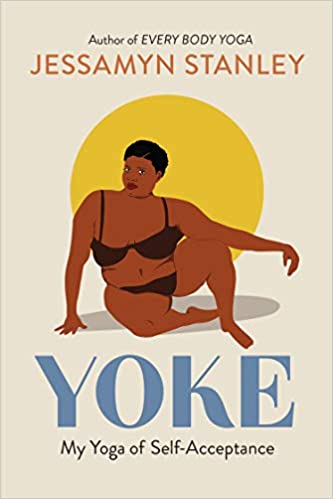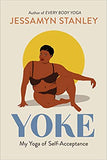Finding self-acceptance both on and off the mat.
In Sanskrit, yoga means to “yoke.” To yoke mind and body, movement and breath, light and dark, the good and the bad. This larger idea of “yoke” is what Jessamyn Stanley calls the yoga of the everyday—a yoga that is not just about perfecting your downward dog but about applying the hard lessons learned on the mat to the even harder daily project of living.
In a series of deeply honest, funny autobiographical essays, Jessamyn explores everything from imposter syndrome to cannabis to why it’s a full-time job loving yourself, all through the lens of yoke. She calls out an American yoga complex that prefers debating the merits of cotton versus polyblend leggings rather than owning up to its overwhelming Whiteness. She questions why the Western take on yoga so often misses—or misuses—the tradition’s spiritual dimension. And reveals what she calls her own “whole-ass problematic”: Growing up Baháí, loving astrology, learning to meditate, finding prana in music.
In Sanskrit, yoga means to “yoke.” To yoke mind and body, movement and breath, light and dark, the good and the bad. This larger idea of “yoke” is what Jessamyn Stanley calls the yoga of the everyday—a yoga that is not just about perfecting your downward dog but about applying the hard lessons learned on the mat to the even harder daily project of living.
In a series of deeply honest, funny autobiographical essays, Jessamyn explores everything from imposter syndrome to cannabis to why it’s a full-time job loving yourself, all through the lens of yoke. She calls out an American yoga complex that prefers debating the merits of cotton versus polyblend leggings rather than owning up to its overwhelming Whiteness. She questions why the Western take on yoga so often misses—or misuses—the tradition’s spiritual dimension. And reveals what she calls her own “whole-ass problematic”: Growing up Baháí, loving astrology, learning to meditate, finding prana in music.


